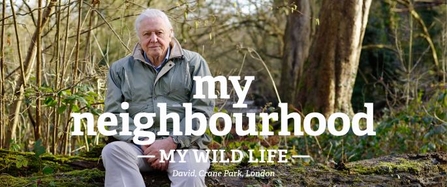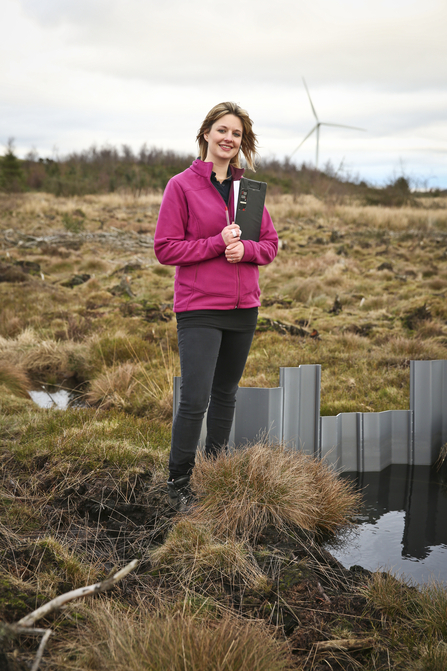
A Wild Life is a Better Life

When we stop and think, we all know that nature is good for us – but how often do we stop and think?
The Wildlife Trusts are launching My Wild Life today which encourages us all to stop for a minute to reflect on what wildlife means to us and think about how to make wildlife part of our everyday lives. If we did this, not only would wildlife benefit, but so would we – because contact with nature is good for us. Those people lucky enough to live near and experience green spaces have a 50% chance of being more healthy – both physically and mentally and are 40% less likely to become overweight or obese.
The Wildlife Trusts are encouraging people from all walks of life to share their own personal stories about what nature means to them
Sir David Attenborough has travelled the world in search of wildlife but in London where he lives he can watch stag beetles flying in his garden and marvel at ancient trees in London’s parks. Sir David, The Wildlife Trusts’ President Emeritus, says: “Contact with nature should not be the preserve of the privileged. It is critical to the personal development of our children.
This is why The Wildlife Trusts are restoring wildlife and wild places in towns and cities as well as in the countryside, and why we are encouraging people from all walks of life to share their own personal stories about what nature means to them. Sir David Attenborough is one of hundreds of people taking part so far, alongside students, nurses, families, volunteers, teachers and many others from across the UK. From today his, and other stories, can be found at www.mywildlife.org.uk where people can add their own story and discover wild places near to them.
Sir David continues “People turn to nature in moments of joy and in moments of sadness. We are part of the natural world: we depend on it for the air we breathe and the food we eat. The Wildlife Trusts are helping people to understand their role in the natural world and their dependency on it. This is essential if we are going to speed nature’s recovery.”
Simon King OBE, The Wildlife Trusts’ President, said: “People across the UK benefit from the work The Wildlife Trusts do – from nature therapy projects to forest schools, the thousands of wild places we care for and our work bringing back wildlife and natural processes to landscapes.
"We’ve always known that contact with nature can make a big difference to people’s lives. The evidence is now building to back this up. We hope these stories inspire others to think about their relationship with the natural world and to make nature part of their life.”

My Recovery - Simone My Wild Life
Simone Price volunteers for Durham Wildlife Trust and her story features in My Wild Life.
Simone says: “I had brain surgery in March last year and suffered from headaches afterwards, especially when I was working on a computer.
"When I decided to pursue my passion for wildlife, I was worried that the headaches would get worse, but they disappear completely when I’m volunteering outside. Some of our volunteers have had mental health problems and working in these wild landscapes has really helped them, too.
"I’ve learned loads of new things and met so many interesting people: it’s really therapeutic, and has made me feel happier and healthier again.”
As well as providing thousands of opportunities for people across the UK to make nature part of their everyday lives, The Wildlife Trusts are calling for a Nature and Wellbeing Act in England to put nature at the heart of decisions about how our country is run, including health, housing and other development, education, economic growth, and flood resilience. The proposals have been put forward by The Wildlife Trusts and the RSPB, supported by a partnership of 20 organisations.
Everyone can share their stories of the wildlife and wild places which matter to them and why, using #MyWildLife on Twitter, Facebook and Instagram.
- Find inspiration – explore stories about people and nature at mywildlife.org.uk, including Sir David’s, Simon’s and Simone’s.
- Share your wild life – share your ‘Wild Life’ and what nature means to you. Upload your story at mywildlife.org.uk or use #MyWildLife
- Make nature part of your life – see our ideas for putting the wild back in your life
- Ask for change – send a message to your MP asking them to and call for a Nature and Wellbeing Act in their Party’s election manifesto
